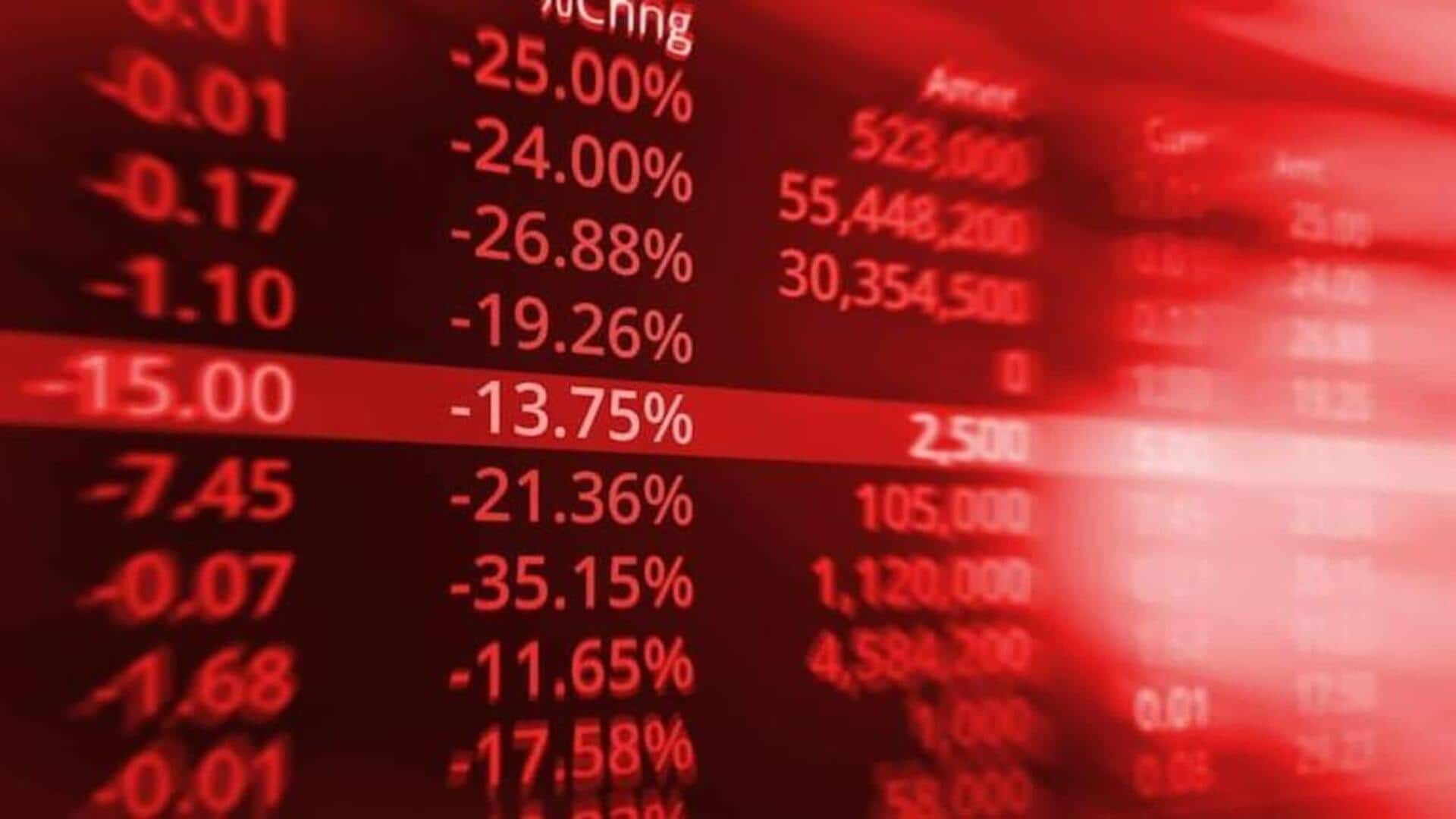
Investors lose ₹60T in 100 days: Is the worst over?
What's the story
The recent equities sell-off in Indian stock market, led by aggressive offloading by foreign portfolio investors (FPIs), has led to a massive loss of investor wealth. About ₹60 trillion has been wiped out over the last three and a half months. This downward trend is likely to continue as long as FPIs keep up their selling spree in the face of an uncertain macroeconomic climate.
Market dip
Market capitalization and Nifty 50 index witness significant drop
On September 27, the total market capitalization of all stocks was valued at ₹473.84 trillion with the Nifty 50 index hitting a record high of 26,277.35. Since then, the benchmark index has corrected 12% to 23,085.95 as of Monday. This has resulted in a loss of investor wealth by ₹59.61 trillion to ₹414.23 trillion on Monday.
Market underperformance
Broader markets also experience downturn
The broader markets, including the Nifty Smallcap 250 and Nifty Midcap 150, have also underperformed, falling 13.5% each since their late-September highs. This has also contributed to the fall in market capitalization. The sell-off is mainly by FPIs who have offloaded secondary shares worth a net ₹1.85 trillion from October through January 12 amid a falling rupee and rising crude oil prices due to fresh US curbs on Russia.
DII impact
Domestic institutional investors' role in the market downturn
Despite DIIs, led by mutual funds, buying ₹2.18 trillion worth shares from the secondary market during the same period, the market has continued to fall. This is because DIIs are bidding at lower prices to provide exits for FPIs. "Volatility will continue so long as FPIs are selling aggressively," said Nilesh Shah, managing director at Kotak Mahindra AMC. "Once FPIs stop (selling) and begin buying, the market will resume its uptrend."
Global influence
External factors influencing market volatility
The weakening rupee and rising crude oil prices due to increasing bond yields in the US ahead of President-elect Donald Trump's inauguration, and new sanctions imposed by the outgoing Joe Biden administration on Russian tankers and maritime insurers, are unlikely to encourage FPI buying. "Falling rupee and rising crude is a double whammy for Indian equities," said G. Chokkalingam, founder of Equinomics.
Economic effects
Impact of US bond yields and rupee depreciation
Since September 27, Brent crude has risen 12% to breach the $80 barrel mark. Meanwhile, the rupee has fallen 3.4% to a record closing low of 86.58 against the dollar on Monday. This fall cuts FPI's dollar returns. Further, rising US bond yields have triggered a sell-off in emerging market stocks, bonds and currencies with global investors flocking to the safety of the US 10-year paper or dollar.